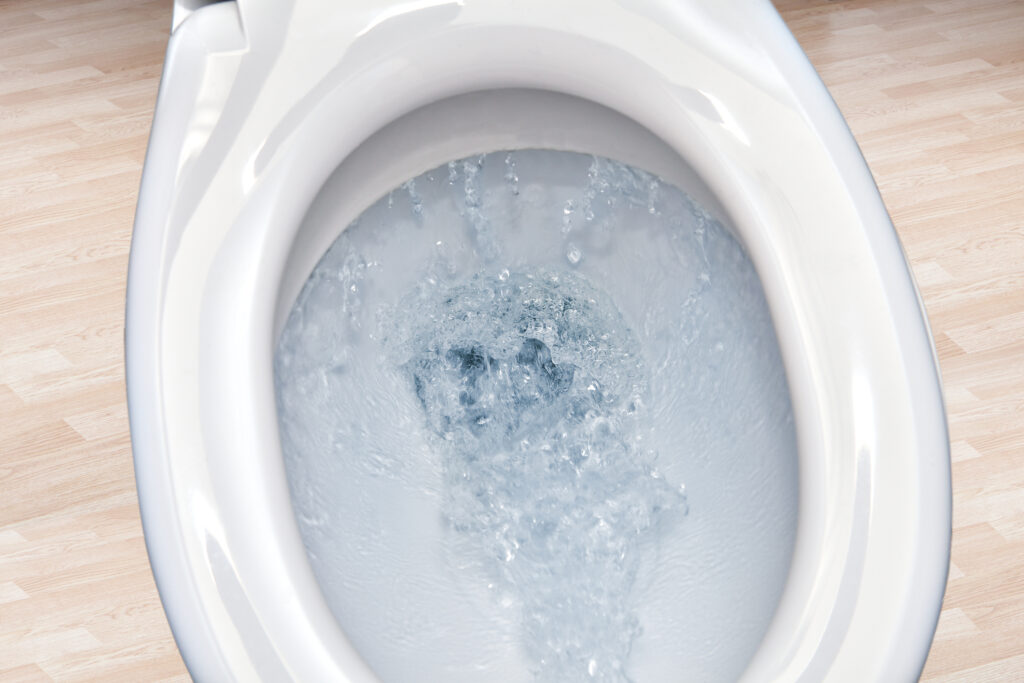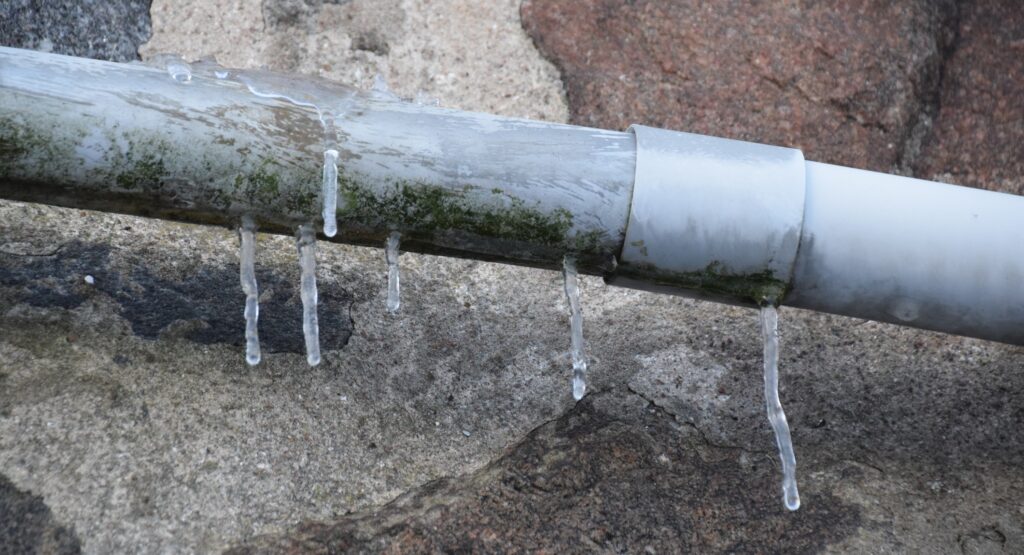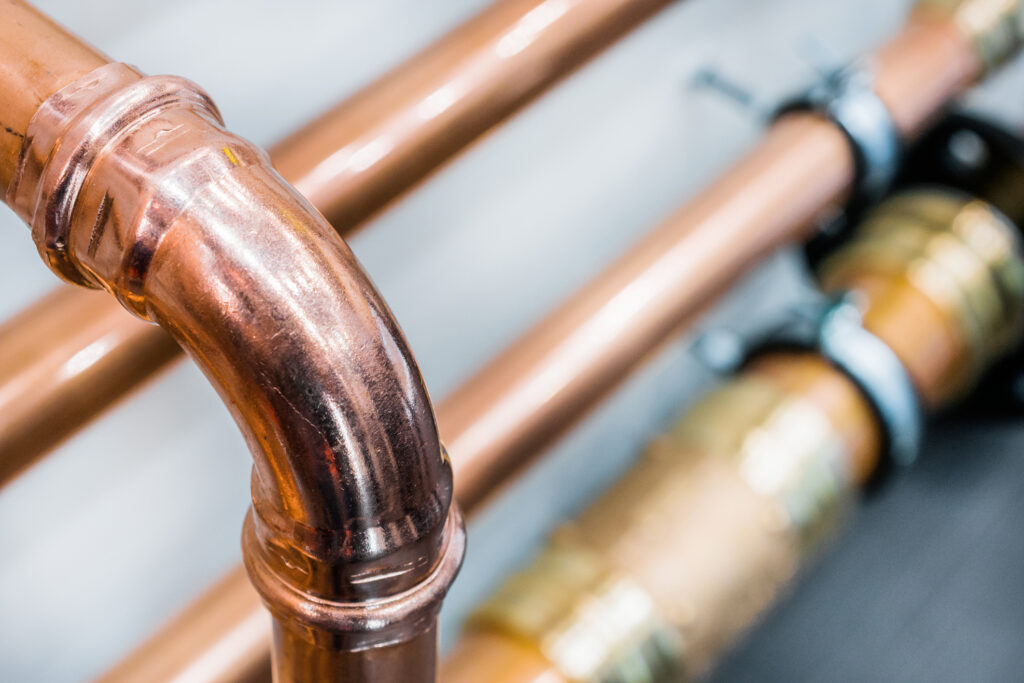Low water pressure at sinks and showers is a common problem in Chicago. While it’s something that many people ignore or get used to, it often indicates a serious issue related to mineral buildup inside pipes. Water always contains some amount of dissolved minerals that build up within pipes and plumbing fixtures over time. When you have hard water, like so many homes in our area do, mineral deposit buildup can be so extensive that it becomes a major concern.

How Chicago’s Hard Water Impacts Plumbing Systems
The water in most of Chicagoland is classified as hard or very hard, which means it has an overly high concentration of minerals like calcium and magnesium. That’s why you may often notice that your water looks chalky or cloudy and has a mineral taste. Far from just impacting taste, the minerals in hard water can cause significant plumbing issues.
Over time, mineral buildup chokes off pipes and reduces the amount of water that can flow through them. This reduced flow is what leads to issues with low water pressure, especially when multiple fixtures are in use at the same time. Mineral buildup can also affect drain and sewer lines, increasing the chances of clogs and sewage backups.
Although copper pipes don’t rust, the minerals in hard water can react with them and lead to corrosion. Minerals also cause abrasion, which weakens pipes and leads to pitting. Corrosion and pitting both increase the chances of pipes eventually developing pinhole leaks that can get larger over time or result in a pipe bursting.
Another concern is the impact that mineral buildup has on appliances like dishwashers, washing machines, water heaters and ice makers. Hard water can lead to internal seals failing or clog the water lines inside appliances, both of which increase the chances of leaks and can shorten the appliance’s lifespan.
Signs of Mineral Buildup
Being alert and watching out for signs of mineral build-up within your plumbing is essential for avoiding major issues and costly repairs. These are some of the main signs to look out for.
- Inconsistent water pressure
- Sputtering water flow
- Chalky mineral residue on faucets and showerheads
- Clogged jets on showerhead
Troubleshooting Low Water Pressure at Sinks and Showers
Low water pressure at a sink or shower doesn’t always mean that there’s a significant buildup of mineral deposits within your pipes. In some cases, you may be able to resolve the problem by taking some basic steps. If you have low water pressure at a sink, it’s a good idea to remove the aerator and check to make sure it isn’t clogged with sediment.
Cleaning a faucet spout or showerhead with a toothbrush to remove limescale helps to increase water pressure. When significant limescale is present, it’s helpful to tie a plastic bag filled with white vinegar around the faucet or showerhead and let it soak for 30 minutes. The vinegar helps to dissolve and loosen the minerals so that they’re easier to remove when you scrub and then flush the fixture.
How to Prevent Mineral Buildup From Damaging Your Plumbing
While the DIY methods in the previous section can temporarily help restore the water pressure at your sink or shower, they aren’t an effective long-term solution to mineral buildup. When dealing with low water pressure and hard water issues throughout your house, it’s important to enlist the help of a professional plumbing company.
Plumbers have a few different options for descaling drain and sewer lines, including hydro jetting and running a drain auger through the pipes. Having your pipes descaled every year or so is a great preventive measure for avoiding clogs and other issues. There are a few methods you can use to descale water lines, but these tend to be effective only when there’s minor mineral buildup. Unfortunately, the only solution for overcoming issues caused by significant buildup is to replace all the affected pipes. Repiping a house is a major undertaking. Nonetheless, it can be more than worth the cost since it will ensure you always have sufficient water pressure and help to avoid leaks and expensive repairs.
The only effective method to prevent mineral buildup inside your plumbing is to install a water softener. Traditional water softeners use an ion-exchange process to fully remove all the minerals from hard water. There are also brine-free water softeners that don’t remove minerals but instead alter them so that few if any deposits are left behind.
Hire Trusted Pros
For professional plumbing services in Chicago you can trust, turn to the pros at Goode Plumbing. We offer a range of quality water treatment systems to prevent mineral buildup and ensure that your drinking water is clean and pure.
Our pipe replacement and leak repair services can also help you overcome and prevent major problems. To schedule pipe detection or water treatment installation for your Chicago home, contact Goode Plumbing today.





